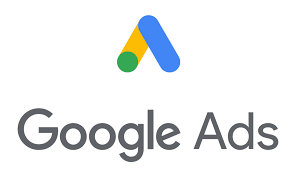Branding | Marketing | Advertising
What are SERPs and Featured Snippets? How Do They Boost Search Traffic?
By: Steven Lockhart
Recent Marketing Blogs
Steven Lockhart is a seasoned professional known for driving success through innovation and strategic vision. With expertise in technology, healthcare, and financial services, he has led initiatives that push boundaries and create growth opportunities. His achievements include launching industry-first initiatives, leading successful turnarounds, and building high-performing teams. As a thought leader in Marketing and Advising Companies, he shares insights at industry events and mentors aspiring professionals. Committed to excellence, Steven seeks new challenges to make a positive impact, making him a valuable asset for organizations aiming for sustainable growth.
Beyond his extensive experience, Mr. Lockhart is recognized as a thought leader in Marketing and Advising Companies. He actively participates in industry conferences and events, sharing his insights and expertise with others. He is also passionate about mentoring aspiring professionals, providing valuable guidance and support on their career journeys.
Driven by a persistent spirit and a commitment to excellence, Steven Lockhart continues to seek new challenges and opportunities to make a positive impact. He is a valuable asset to any organization seeking to innovate, adapt, and achieve sustainable growth.

What are SERPs? What are Featured Snippets?
Have you ever wondered how to make websites appear at the top of search engine results? This is the magic of Search Engine Results Pages (SERPs) and featured snippets, a powerful duo that connects users with the information they seek. SERPS is a way to show you search results based on intent.
SERPs: Your Roadmap to Online Information
Imagine SERPs (Search Engine Results Pages) as a huge, ever-evolving catalog of answers for the internet. When you enter a search query, search engines like Google act as tireless librarians. They tirelessly crawl the web, analyzing countless websites to determine which ones offer the most accurate and helpful answers to your question.
The most relevant and informative websites then appear on the SERP. Consider it your personalized roadmap to valuable online resources. Each result is like a carefully curated book recommendation, tailored specifically to your search. SERPS transform the internet’s boundless information into a neatly organized pathway, guiding you directly to the knowledge you seek.
Featured Snippets: The Spotlight on Your Expertise
Sometimes, a single website gets an extra special spot on the SERP. This is where snippets come in! Imagine a snippet as a concise summary, a captivating preview of the in-depth content on your website. Earning a featured snippet can significantly boost your visibility and establish you as a trusted authority in your field.
Optimizing for Success: The Power of SEO
So, how do you get your website to shine on SERPs and potentially land those coveted snippets? This is where Search Engine Optimization (SEO) comes into play. SEO is the art and science of making your website more discoverable by search engines. By using relevant keywords, crafting clear and informative content, and building a strong online presence, you can increase your website’s ranking on SERPs and attract a wider audience.

What are SERPs? A Deeper Dive
SERPs, or Search Engine Results Pages, are the ever-changing pages you see after typing something into Google, Bing, or other search engines. Understanding the elements of SERPs helps you unlock how users find information online.
Let’s Break Down a Typical SERP:
-
- Paid Ads: These appear at the top or side of the page, often marked as “sponsored”. They make up a small portion of overall clicks (roughly 10%). Companies pay to have their websites featured here.
-
- Google Business Profile (Local Searches): For searches with local intent (like “bakery near me”), a map and business listings dominate the SERP. These results are heavily influenced by your location and a business’s online reviews, making up a significant 60% of clicks.
-
- Organic Listings (National and Local): These websites earned their place through relevance to your search terms and overall website authority. Clicks here vary: locally around 20%, but nationally can be as high as 60%!
-
- SERP Features (Snippets): Eye-catching elements like answer boxes, image carousels, and videos pop up for certain searches. These grab attention and snag a decent chunk of traffic (10-30%). Websites can optimize content to try and have their info featured here.
Important Takeaways:
-
- SERPs Are Not Static: Results change based on the words you search, your location, and even your past search history
-
- Good SEO Means Appearing in Multiple Places: The goal is to optimize your website for organic search, local search, and potentially be featured in those attention-grabbing SERP features!
***HOWEVER, if you rank high with a ton of snippets (which show up as SERPS), you almost always rank #1 in Organic and Google Business Profile.***
Benefits of Featured Snippets:
-
- Zero-Click Position: Snippets often appear at the very top of SERPs (position zero), giving you the most prominent spot even above paid ads. This means your website gets maximum visibility, potentially enticing searchers to click through, even if they find the answer within the snippet itself.
-
- Builds Authority: Google selects your content as the best, most concise answer to a query. It signals to users (and search engines) that your website is a reliable, trustworthy source of information. This boost in authority can lead to better overall rankings in the long run.
-
- Increases Traffic Potential: Being featured in a snippet attracts more clicks and eyes to your website, even if users don’t click through immediately. Think of it as free advertising – increased exposure for your brand and potentially more organic traffic over time.
-
- Boosts Brand Awareness: Even without direct clicks, frequent appearances in snippets reinforce name recognition for your business. The more often users see your brand in these prominent positions, the more likely they are to remember and trust you when they need your services.
-
- Voice Search Optimization: Snippets are often read aloud by smart assistants like Alexa or Google Home. Optimizing for snippets means optimizing for voice search, which is becoming increasingly important as more people use voice assistants to find information.
How to Optimize SEO for Featured Snippets: A Step-by-Step Guide
1. Understand User Intent: Put yourself in your target audience’s shoes.
-
- What specific questions might they ask Google about your topic? Brainstorm different ways they could phrase those questions.
-
- Example: If you offer financial services, searchers might ask “How to calculate retirement savings” or “What is the best investment strategy?”
2. Provide Clear, Concise Answers: Think “to the point” and user-friendly.
-
- Address the core of the user’s question directly in the opening sentence or two of your content.
-
- Avoid overly complex language or unnecessary fluff.
-
- Example: Don’t just list investment strategies, include a brief explanation of what each means and who it suits best.
3. Structure is Key: Make your content “skimmable” for both humans and search engines. * Use headings (H2, H3) to break down your answer into sections. * Bullet points or numbered lists are perfect for definitions or step-by-step instructions. * Consider using a table to compare data if applicable.
4. Target Long-Tail Keywords: Get specific to capture those question-based searches. * Instead of just “retirement planning,” try “How much should I save for retirement at age 40?”
* Tools like Google’s “People Also Ask” can help you find these more niche phrases that align with user searches.
Bonus Tip: If you already rank well for a term, study the existing featured snippet. How can you make your content even clearer and more helpful to beat out the competition?
You can, of course, figure out how to rank for these on your own…or you can utilize my 25 years of Growth Hacking 🙂
Less than 5% of digital marketing professionals I’ve met with incorporate this into their strategy, which is a shame for their clients, but it’s a key part of how I rank EVERY client #1 for their target keywords.
How To Boost Clicks Through Search Results Based on Intent
Getting your website to rank high in search results is essential, but that’s only half the battle. To convert those search impressions into actual clicks, you need to understand search intent – the “why” behind a person’s Google search. Here’s how to optimize for clicks based on different intent types:
Types of Search Intent
-
- Informational: People looking for answers (“how to fix a leaky faucet”).
-
- Navigational: Searching for a specific website or brand (“Nike website”).
-
- Commercial: Investigating products before buying (“best affordable laptops”).
-
- Transactional: Ready to purchase (“buy Nike Air Jordans”).
Matching Content to Intent
Here’s how to align your content and presentation with each search intent type:
-
- Informational:
-
- Blog posts, guides, videos that provide clear answers.
-
- Target long-tail keywords (e.g., “how to optimize website for mobile”) to capture specific questions.
-
- Aim for featured snippets to get that top-of-the-page spot.
-
- Informational:
-
- Navigational:
-
- Ensure your brand name and keywords are prominent in your website’s metadata.
-
- Claim and optimize your Google Business Profile for visibility in map searches.
-
- Navigational:
-
- Commercial:
-
- Product pages with detailed descriptions, reviews, and high-quality images.
-
- Comparison guides help users make informed decisions.
-
- Use keywords like “best,” “review,” and “top [year]”
-
- Commercial:
-
- Transactional:
-
- Clear calls to action (“Buy Now,” “Add to Cart”).
-
- Offer competitive pricing and promotions to encourage purchases.
-
- Make the checkout process seamless.
-
- Transactional:
Tools for the Job
-
- Google’s “People Also Ask” feature: Reveals common questions in your niche.
-
- Keyword tools like Ahrefs or Semrush: Show you what terms people are searching for and help categorize intent.
-
- Your own analytics: Analyze which keywords drive traffic AND conversions.
Remember: It’s Not Just About Keywords
While keywords matter, these additional factors are key for high click-through-rates (CTRs):
-
- Title Tags: Make them catchy, relevant, and under 60 characters.
-
- Meta Descriptions: This is your “elevator pitch.” Clearly describe what the page offers in under 160 characters.
-
- Visuals: Featured snippets with images are more likely to get clicked!
By aligning your content with the searcher’s true intent and crafting compelling teasers on the SERPs, you’ll transform more searches into website visits and successful conversions.
-
- Ahrefs – A powerful keyword research tool that helps you understand what terms people are searching for and categorize intent.
- Semrush – Another comprehensive keyword tool that provides insights into search intent and helps you optimize your content accordingly.
- Google – Utilize Google’s “People Also Ask” feature to discover common questions in your niche, aiding in aligning your content with search intent.
- Steven Lockhart – Innovator and Leader in Digital Marketing.
- Branding | Marketing | Advertising – Branding, Marketing, Advertising Agency crafts custom digital solutions that cultivate deeper connections with your customers and drives measurable results
Frequently Asked Question
That box is a featured snippet – Google's attempt to give you the answer without even needing to click on a website! Think of it as the search engine's way of saying, "Hey, I think this is exactly what you need, so I highlighted it for you."
Ah, the quest for the coveted "position zero"! While there's no guaranteed formula, imagine writing content as if you're directly answering someone's question. Keep it clear, concise, and packed with the information someone is likely searching for.
Nope! SERPs are surprisingly personalized. Think about it: your location, past search history, and even the type of device you're using can all subtly change what shows up on your results page. It's like your search engine is getting to know you!
SERP features are those eye-catching bits of info that go beyond the classic list of links. They can be maps, images, recipe cards... even little calculators! These features are all about making your search results more helpful and engaging.
You'd be surprised! Search engines are constantly learning to decipher the way we naturally ask questions. They're getting better at understanding the meaning behind our words, not just the keywords themselves. It's a bit like having a conversation with a very well-read friend!






